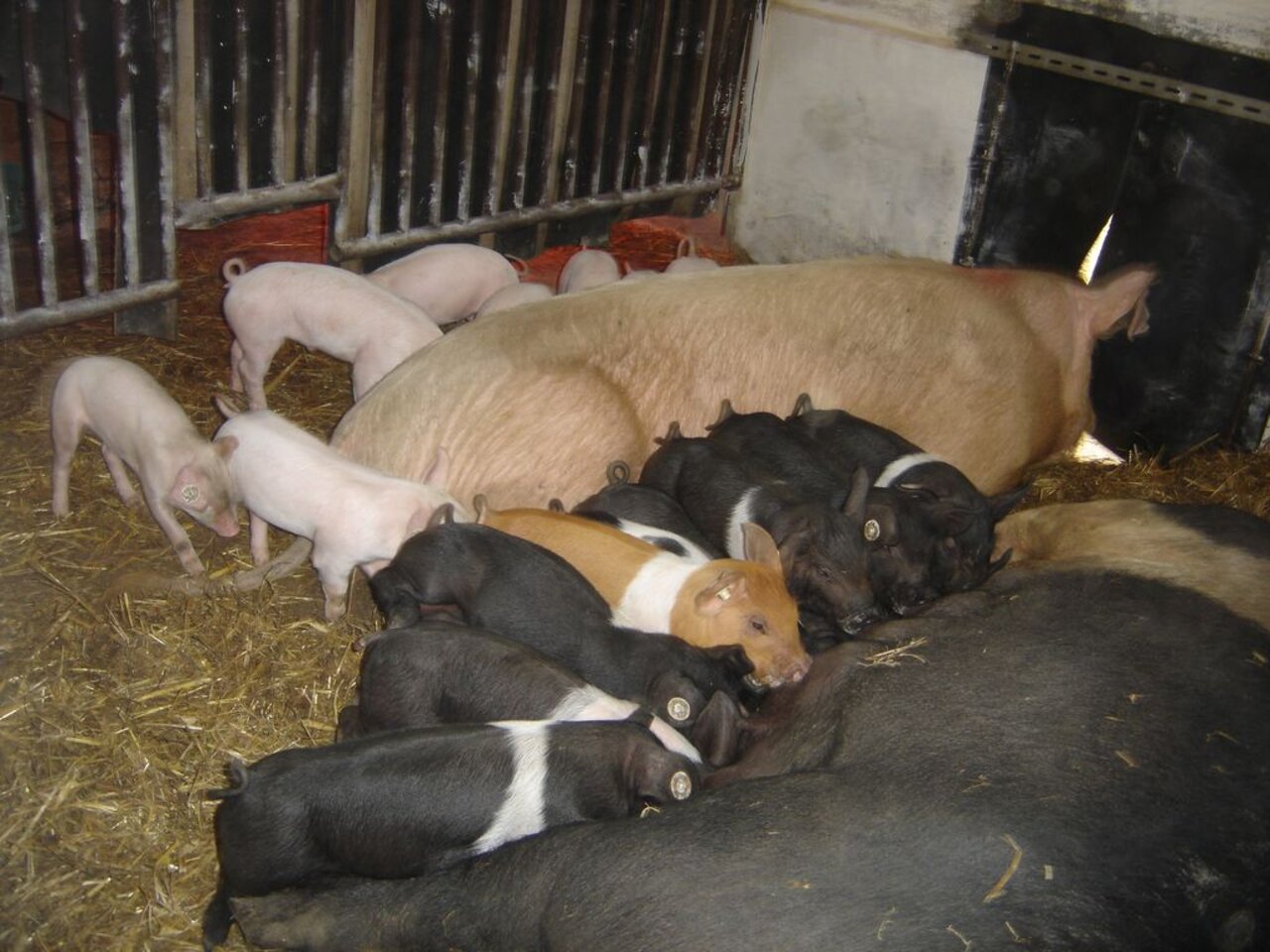Project
piglet castration

Effect of different anaesthesia procedures on piglet behaviour during and after castration in organic animal husbandry
Castration without anaesthesia will be banned for t6he whole pig German sector on January 1, 2019. Apart from the alternatives boar fattening and vaccination against boar taint, castration under general anaestesia is still the preferred method. However, there are doubts whether the allowed anaesthetics are optimally suited for organic pig husbandry.
Background and Objective
While castration without anaesthesia is currently allowed for piglet up to the age of 7 days, it will be banned in 2019. The only anaesthetics approved for pigs are ketamine and azaperone, which are injected into the muscle. Injection anaesthesia is associated with a long recovery peirod, which can prove risky under the conditions of outdoor climate housing systems and the free farrowing pens found in organic pig husbandry.
Inhalation anaesthesia with isoflurane is an alternative to injection of ketamine and azaperone, and is associated with a much shorter recovery period. While the use of isoflurane is widespread in Switzerland, it is not approved for use in pigs in Germany and can therefore only be used after reclassification.
Approach
The aim of the study was to compare anaesthesia via injection and inhalation for castration of male piglets. To this aim, the behaviour of piglets during and after castration and their development until weaning was documented. In total, 47 male piglets from 10 litters were castrated under injection anaesthesia, and 50 male piglets from 10 litters wee castrated under inhalation anaesthesia. Castration was done on the 7th day of life, either after injection of ketamine (Ursotamin®, 100 mg ml-1) and azaperone (Stresnil®, 40 mg ml-1) in a dosage of 25 mh ketamine and 2 mg azaperone kg-1 live weight, or after inhalation of isofluaren (anaesthesia device „Porc Anest 1000“, 90 s of 5% isoflurane per piglet (Isothesia®, 1000 mg g-1)). Irrespective of the method of anaesthesia, all piglets received 2 mg of the analgesic meloxicam (Metacam®, 5 mg ml-1).
Data and Methods
The experiment took place at the eco-certified research farm of the Thünen-Institute of Organic Farming. 26 litters with a total 262 were randomly allocated to the 3 treatments. The male pigs served as test group, female piglets and male piglets not suitable for castration served as control group. During castration, a pain scoring was conducted for all test animals. Subsequently, scoring of behaviour and position of the piglet in the pen was carried out in an eight our period with direct observations for all piglets.
Results
The method of anaesthesia did not impair long-term growth of male piglets in this study. However, negative effects on behaviour of piglets during and after castration were found, among other things a higher incidence of situations in which piglets were in danger of being crushed. We therefore conclude that inhalation anaesthesia with isoflurane plus the analgesic meloxican is preferable to injection anaesthesia with ketamine/azaperone plus meloxicam, and recommed the early approval of isoflurane for use in pigs.
Thünen-Contact

Involved Thünen-Partners
Involved external Thünen-Partners
- Christian-Albrechts-Universität zu Kiel
(Kiel, Deutschland)
Duration
1.2011 - 12.2016
More Information
Project status:
finished
Publications
- 0
Baldinger L, Traulsen I, Weißmann F, Krieter J, Bussemas R (2017) Vergleich der Injektions- und Inhalationsnarkose zur Kastration von ökologisch aufgezogenen Ferkeln hinsichtlich Verhalten und Wachstum. Landbauforsch Appl Agric Forestry Res 67(2):71-78, DOI:10.3220/LBF1498560866000
- 1
Baldinger L, Traulsen I, Weißmann F, Bussemas R (2017) Verhalten und Wachstum von Ferkeln nach der Kastration unter Injektions- oder Inhalationsnarkose. In: Wolfrum S, Heuwinkel H, Reents HJ, Hülsbergen KJ (eds) Ökologischen Landbau weiterdenken - Verantwortung übernehmen, Vertrauen stärken : Beiträge zur 14. Wissenschaftstagung Ökologischer Landbau, Freising-Weihenstephan, 7. bis 10. März 2017. Berlin: Köster, pp 570-573

![[Translate to English:] [Translate to English:]](/media/_processed_/8/e/csm_Bildschirmfoto_2021-03-03_bearb_fc48ac88bf.jpeg)
![[Translate to English:] [Translate to English:]](/media/_processed_/8/e/csm_Bildschirmfoto_2021-03-03_bearb_ba3ec0e9d7.jpeg)





